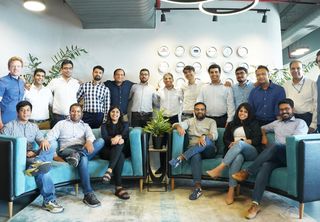Harnessing Better Experience and Innovative GTM: Marketplaces Unleashed Part 3
Exploring the last two pillars of our marketplaces framework through case studies
Harnessing Better Experience and Innovative GTM: Marketplaces Unleashed Part 3
Exploring the last two pillars of our marketplaces framework through case studies
We now turn our attention to the remaining two pillars of our framework. While we cannot overstate the power of unique supply and a new target audience, the success of a marketplace in today's hyper-competitive landscape often hinges on its ability to provide a superior experience than its competitors or traditional models and the innovation it brings to its GTM strategy.
In the following sections, we will explore more such stories of platform businesses that leveraged the last two elements of the foundational axes of our framework to create significant outcomes.

(This is the concluding piece in our Marketplaces Series, a three-part exploration of the strategies and dynamics that shape robust platform businesses. In this series, we have distilled the key insights from our extensive observations of successful platform businesses within and outside our portfolio)
If you missed part 2, you can check out Harnessing Unique Supply and New Audiences: Marketplaces Unleashed Part 2 where we expanded upon the first two pillars of our marketplaces framework. It presents case studies of industry trailblazers who leveraged these two dimensions to disrupt traditional business landscapes.
If you missed part 1, check out Marketplaces Unleashed: Fuelling India's $200B Consumer Spending Surge which examined the current online consumer marketplaces landscape and explored the drivers behind the remarkable surge in India's online spending.
In the last article in the series, drawing from real-world successes of companies, we delved into how differentiating with exclusive offerings and identifying and serving untapped customer bases can propel marketplace businesses to new heights.
Consider the case of DoorDash. Founded by four Stanford students in 2013 as a local delivery service in Palo Alto, it is now the dominant player in the US on-demand food delivery market with a 65% share, up from just 18% in 2018. Doordash's success can be attributed to its strategic choice to focus on suburban markets and smaller metropolitan areas since its founding. While existing platforms served urban areas, DoorDash targeted an audience who were underserved by incumbents. Additionally, in its early days, the platform differentiated itself by delivering from restaurants that did not have their own delivery services, essentially unlocking a unique supply for customers.
After delving into these compelling cases, the influence of these four pillars in facilitating remarkable successes for marketplace businesses is evident. Often, you'll notice the interplay of these axes, born from the founders' profound understanding of their target audience's needs and pain points. The synergy of these elements can lead to extraordinary outcomes, and this may be even more critical as incumbent marketplaces naturally already have a hold in most known spaces.
The idea behind the framework is to help give marketplace builders a guiding thought process and is open to evolution. We're keen to hear feedback and thoughts from marketplace builders and operators.
To engage with our Consumer Tech team, please reach out to anand@elevationcapital.com and manish@elevationcapital.com.

WhatNot (founded in 2019) in the US is a marketplace built for a strong community of collectors and hobbyists who trade in sports cards, Pokémon collectibles, Funko Pop! figures, and other similar items. The long-established place for these transactions has been eBay, where the experience is primarily transactional and impersonal.
WhatNot innovated with a live stream-based approach. This allowed sellers not just to list their products but showcase them in a live environment, opening up packs of cards in real-time, for example. This resulted in a significantly more engaging and interactive shopping experience that eBay could not offer. This 'show and tell' model also builds higher trust between the buyers and sellers, on top of WhatNot's practice of verifying every item sold on the platform.
As WhatNot grew its revenues over 20 times year-over-year, its latest funding round of $260M in July 2022 valued the shopping platform at $3.7B.
WhatNot created a unique, social shopping experience rich with discovery by combining entertainment and connection with its live video format.
Temu

Temu's complex and advanced algorithm considers a multitude of factors to curate a personalized product feed for each user, ensuring the most appealing product recommendations.
Experience, however, is not limited to a better app or website experience but can mean other improvements. A different take on experience is the rise of Quick Commerce, which has taken the marketplace by storm in the last two years. Built on a promise of delivery within 10-15 minutes, quick commerce drastically alters the grocery shopping experience and promotes a buying behavior that just didn't exist before.

Innovative GTM: Finding A Unique Cost-Efficient Marketing and Distribution Channel
Innovation is critical not just to the product or service a marketplace offers, but also to the strategy it uses to market itself and acquire users. The fourth and final axis of our framework revolves around innovating with your Go-To-Market approach and acquiring users through unique and previously untested channels.
Tinder

An atypical and ingenious example of the fourth axis is that of Tinder - which leveraged the power of college communities for early growth through dorm parties in 2012. At its inception, the dating app wasn't known to many and to reach its core audience of college students, Tinder held exclusive dorm parties which carried little to no marketing expenses. Some of Tinder's developers were part of the fraternity and sorority system at the University of Southern California. The Tinder team offered to host parties for sororities under the condition that everyone attending had to download the Tinder app and show it at the door to gain entrance.
This created a sense of exclusivity and excitement around the app and helped drive downloads. The offline dorm party GTM strategy was a massive success for Tinder. The pattern was repeated on other campuses throughout that fall. The app quickly became popular on college campuses, and it soon spread to other demographics.
Citymall

Within our portfolio, Citymall has been successful in bringing online grocery to Tier 3/4 towns in India through a unique GTM strategy. Instead of relying solely on advertising, they identified Community Leaders in every local area to take ownership of ordering on behalf of others and facilitate the delivery and customer experience. These local leaders, known for their social influence within their communities, serve as the intermediary between Citymall and the customers. Citymall empowers these CLs through required support and backend infrastructure, creating earning opportunities for 1000s of micro-entrepreneurs.
Citymall sources products from both local and prominent brands, which the CLs then market and deliver within their communities. This approach not only positions these leaders as resellers of Citymall's products but also allows them to enhance their household income significantly as Community Leaders earn a commission from the sales.
Read more about why we partnered with Citymall here.
Conclusion
While we spoke about examples that have been built in the last decade or so around the framework, below we illustrate some interesting up-and-coming themes and how they hold up.

Written by Amit Aggarwal, Manish Advani
Related

The State of GenAI in Consumer Applications
The State of GenAI in Consumer Applications
24.07.2024

FirstCry: Bold Ambition Meets Relentless Execution
Celebrating FirstCry's Journey to IPO
14.08.2024

Our New Fund: All In on India
Elevation Capital announces Fund VIII of $670 million, to accelerate partnering with category defining early stage companies in India
07.04.2022